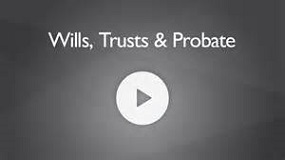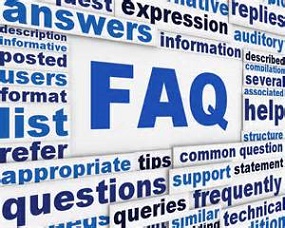Below is a great article on probate in the state of Texas. As you can see there is a lot to know about probate in that great state. But what is really good about Texas is that they have a lot of alternatives to the “typical” estate process. For example, Texas does allow a small estate affidavit, which can allow a small estate to be done quickly and without a huge amount of cost.
The article also goes on about how an executor needs to act in probate estate and whether the estate should have independence or dependent administration.

Then it goes through a bunch of information on the different steps to a normal estate. I recommend you read this article at:
http://greunerblog.estates-trusts.com/estate-planning-library/probate-the-basics/
Texas Probate involves (1) proving that a document is truly the decedent’s Will, and (2) if it is necessary, appointing a representative to gather the estate, pay the bills, and distribute the property – to”administer” the estate. It is not always necessary to “administer” a decedent’s estate. Texas law provides alternatives. “Small Estate Affidavit” is a speedy and inexpensive way to accomplish the transfer of ownership of property when a person dies without a Will. It is available where there is no need for administration (e.g., to pay outstanding debts and etc.) and the decedent’s assets (excluding homestead, exempt assets, and property not subject to probate such as “survivorship” bank accounts) do not exceed a value of $50,000.00. Also, where no administration is necessary and a person dies with a will, the Muniment of Title alternative is also a speedy way to establish the will and identify the heirs. Where a person’s will names an executor and also includes the necessary clauses for the appointment of an Independent Executor, the administration (i.e., gathering all assets, paying all required debts, dealing with creditors, selling or otherwise handling estate assets, handling any claims the decedent had against other persons, distributing property to the designated heirs and etc.) can simplified. Independent administration eliminates the need to continually return to the probate court for permission to do various things. For example, dependent administration requires the court’s permission to sell assets or engage in other activities. Every time the court’s permission is required the costs of probate increase. Another alternative can be used to appoint an Independent Administrator where the executor named in the Will does not serve or where the will names no executor. If all the heirs agree that the court should appoint a specific person to independently administer the estate free from court supervision, there is a process available to accomplish that objective. There are many beneficial alternatives available under Texas law. There are times, however, when Dependent Administration is in fact most appropriate – the oversight of the probate court and the necessity of obtaining permissions and reporting activities to the court are sometimes most appropriate.
After a court determines to admit a will to probate and appoints the person who will take charge of the estate there follows the administration of the estate. When more than one will is offered to the court contests arise over which document is to be accepted by the court. After a document is determined th be the decedent’s Will the court will appoint someone to administer the estate if such is necessary. “Administration” is the body of processes involved in collecting all assets, paying debts to creditors, advancing the decedent’s claims against other persons, the sale or other handling of the decedent’s assets, and all other processes culminating in the distribution of the estate. Broadly summarized, the tasks to be addressed during administration include these:
- Collect, inventory and value all of the decedent’s probate estate. Not all assets are subject to administration – e.g., “survivorship” bank accounts and insurance policies payable to persons other than the estate;
- “Collection” includes asserting claims the decedent or the estate have against other persons – e.g., suits for damages, breach of contract and etc.;
- Even in Independent Administrations the estate is obligated to file with the court a complete list of decedent’s property subject to probate, the value of those assets, and the claims the decedent had against any persons;
- Deliver notice of the open administration to secured creditors;
- Publish notice to general, unsecured creditors;
- Engage necessary professional services (e.g., appraisers, accountants and etc.);
- Determine validity of creditor’s claim and pay or deny payment to dispose of all debts;
- Address all tax obligations;
- Render any required accountings to heirs and beneficiaries during prolonged administrations;
- Distribute estate
- This includes funding/capitalizing any trusts – e.g., any marital or other trusts that are designated to receive decedent’s property.
Sometimes probate administration starts in a state of confusion. If necessary information about a decedent’s property and affairs is scattered and difficult to locate information the survivors can be seriously burdened. Appropriate planning establishes an organized structure. The structure can eliminate chaos before it arises by organizing and centralizing. A coherent plan can create focal points for record-keeping – can centralize all “management” functions. Coherence facilitates continuity without disruption and brings together all required records and documentation. The chaos can be eliminated.
Delayed distributions can create conflicts. Heirs might be demanding their inheritance while executors are concerned about the unfinished obligation of administration. Usually, the tension arises when there is unfinished business – matters such as litigation brought to resolve disputed claims or an ongoing federal tax examination. It is wise to think about excluding various assets from the estate administration. When assets are not subject to probate administration those assets can be used to make distributions for various purposes. Where an estate includes an ongoing business, marketable securities and a wide variety of other kinds of assets, it is prudent to consider constructing trusts during life. Trusts can hold assets that are excluded from the probate administration. Those trusts can provide for a continuity of distributions to the beneficiaries without interruptions caused by the necessities of probate administration.
